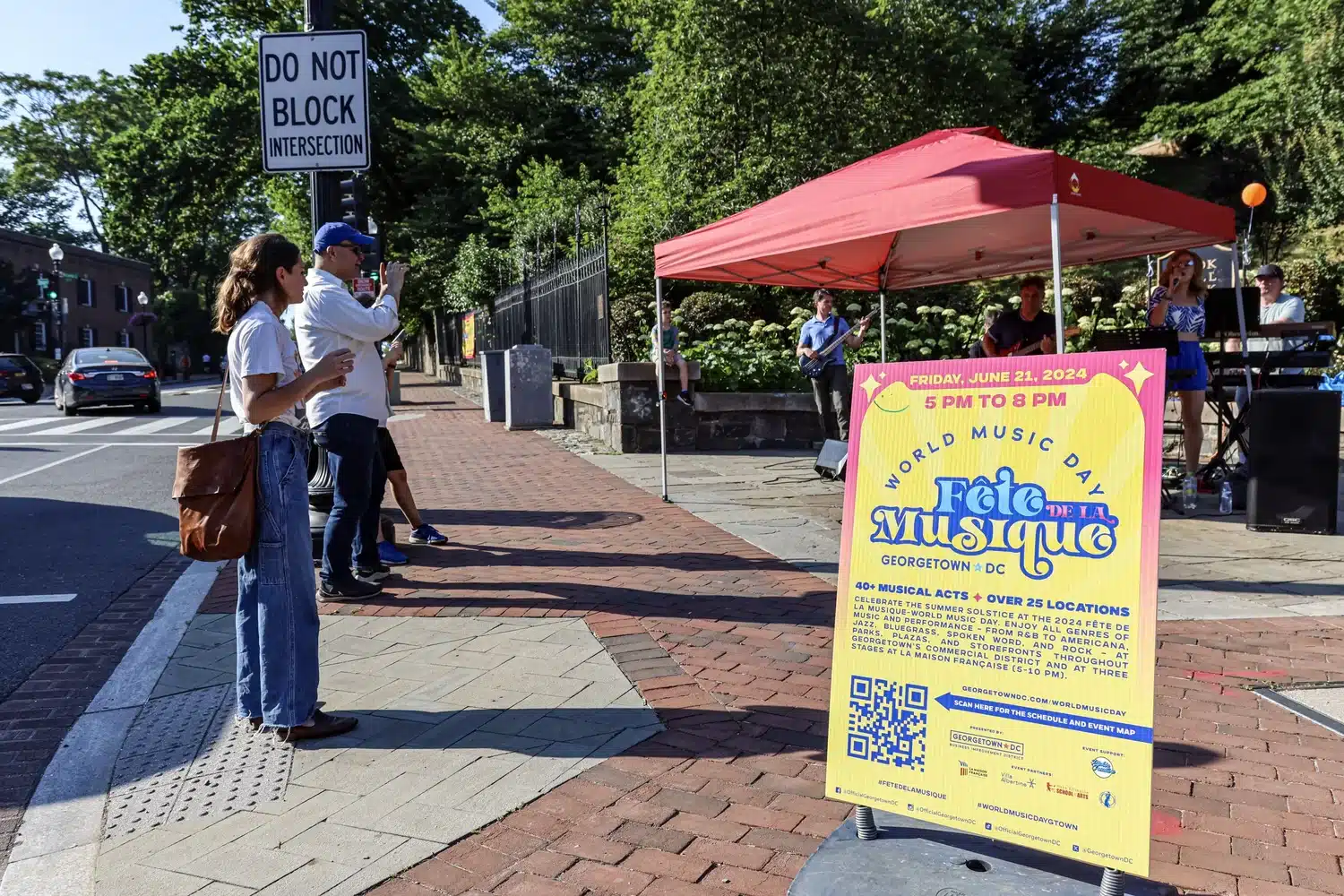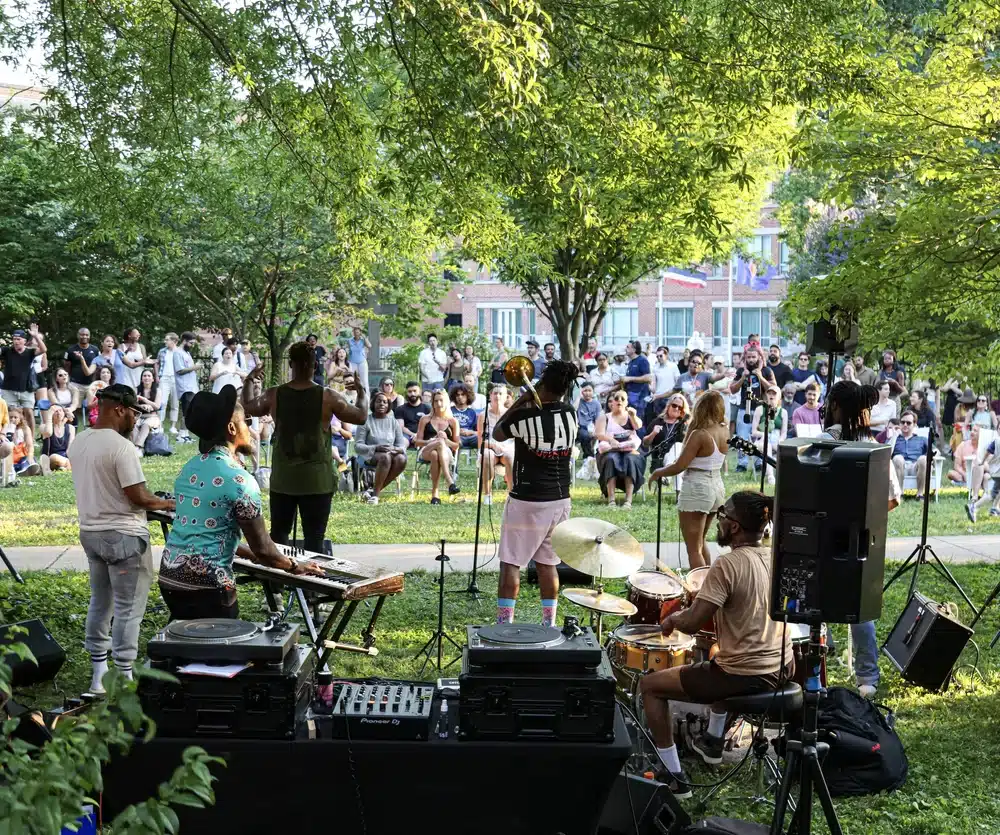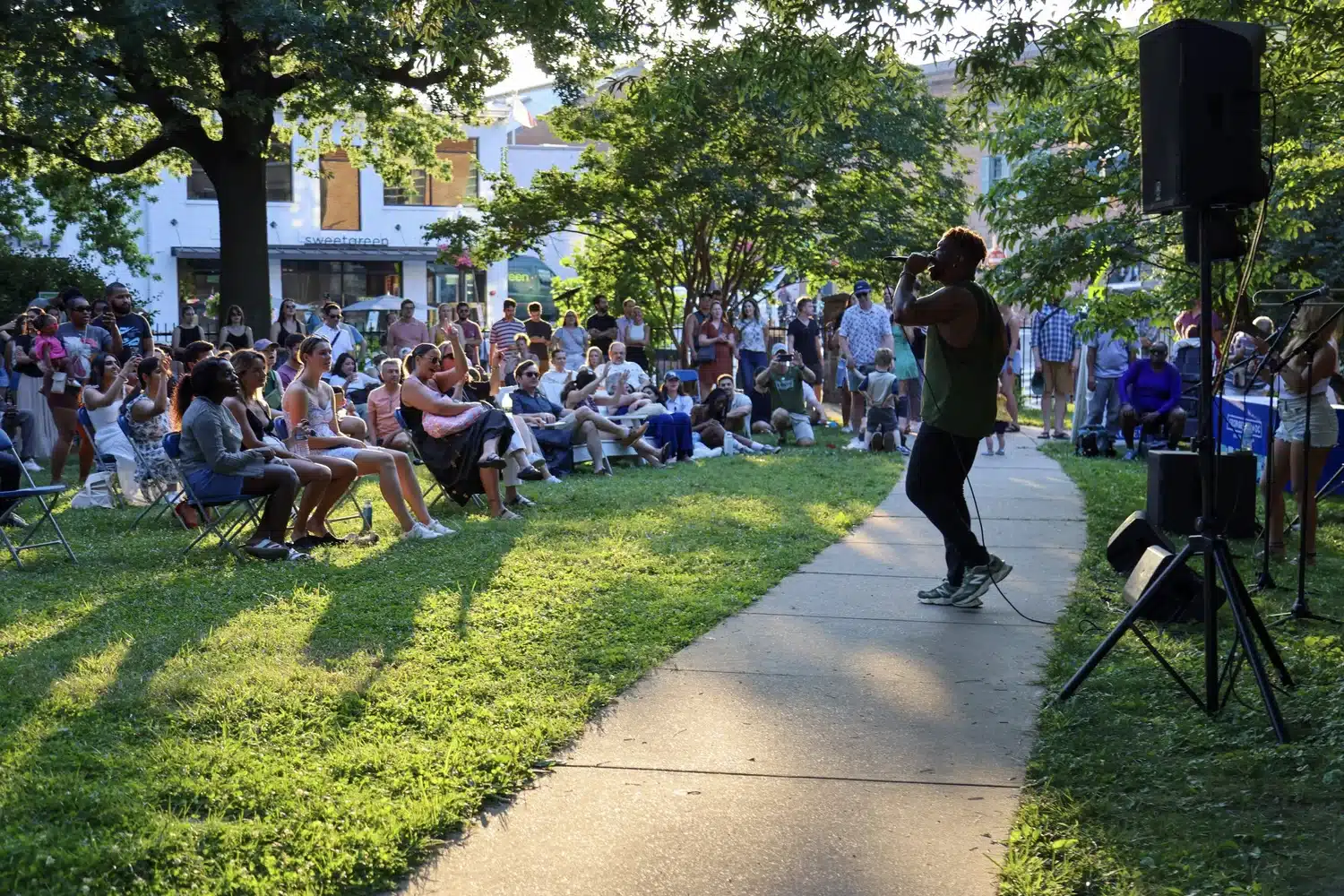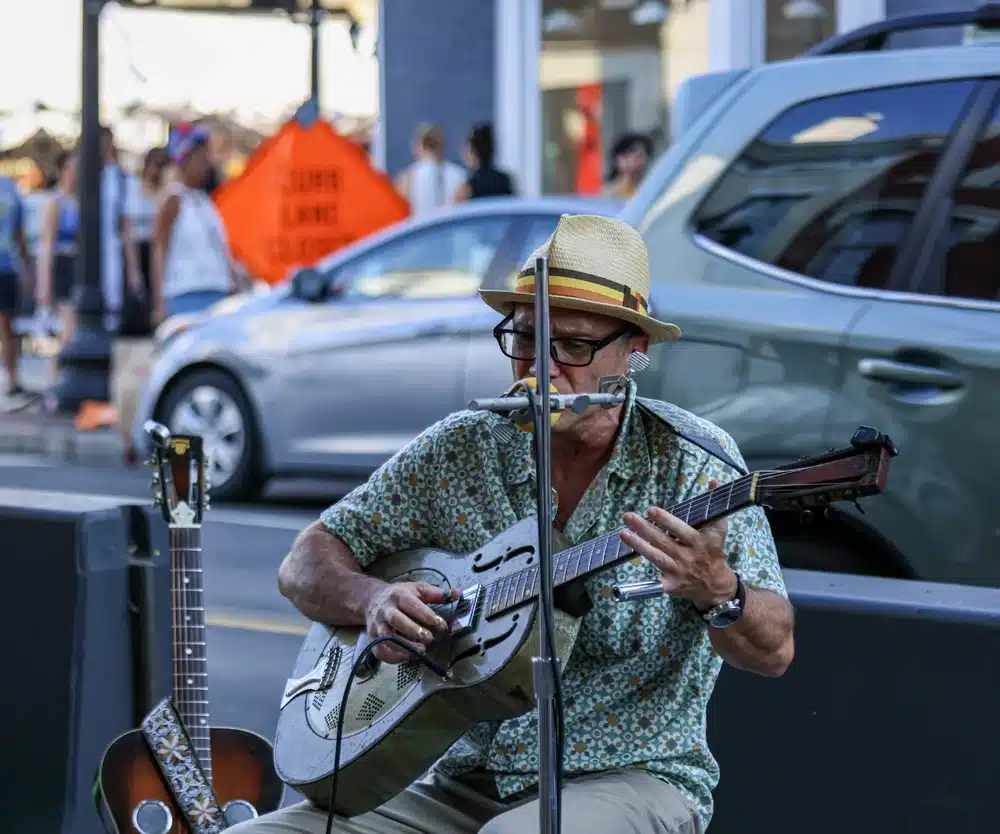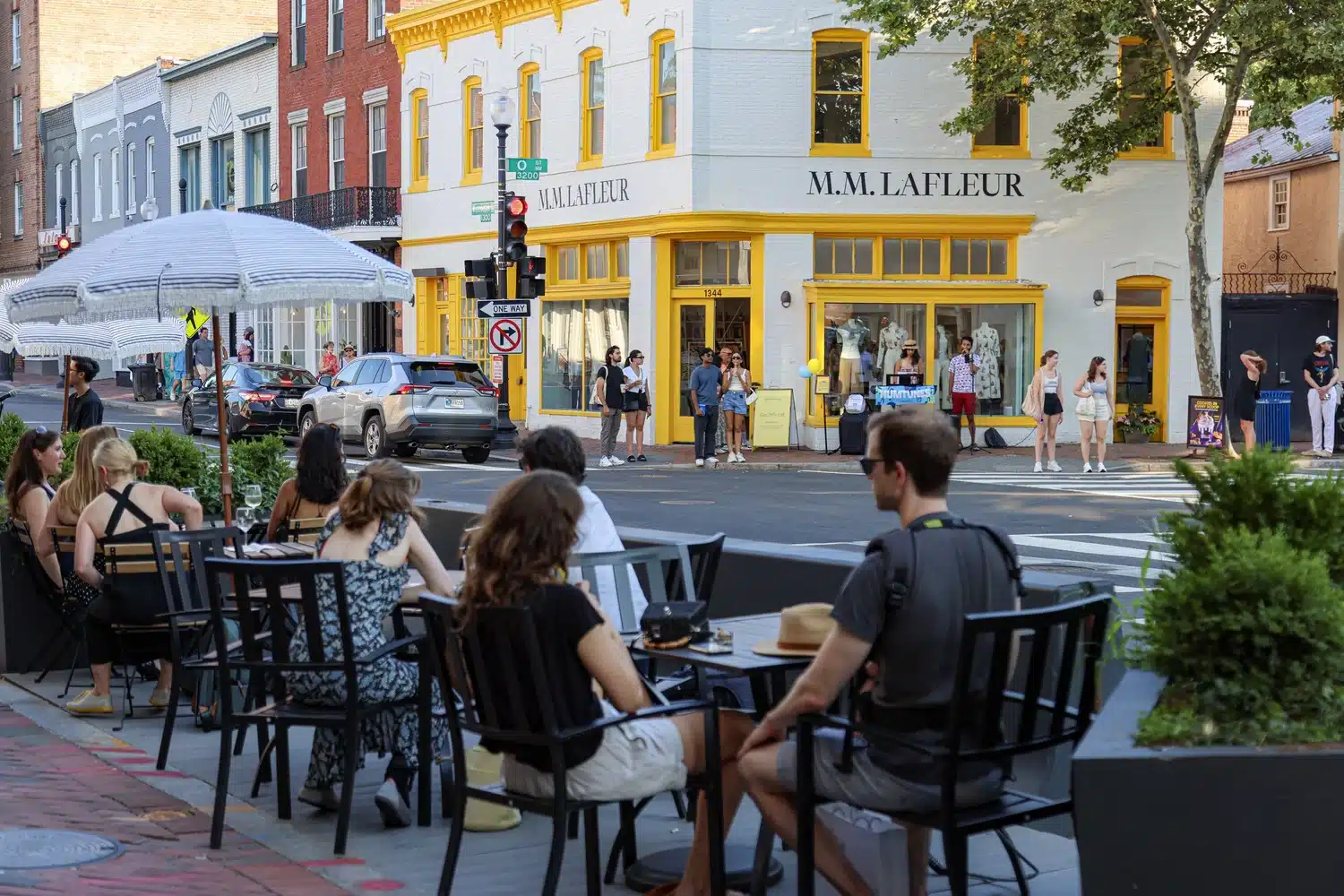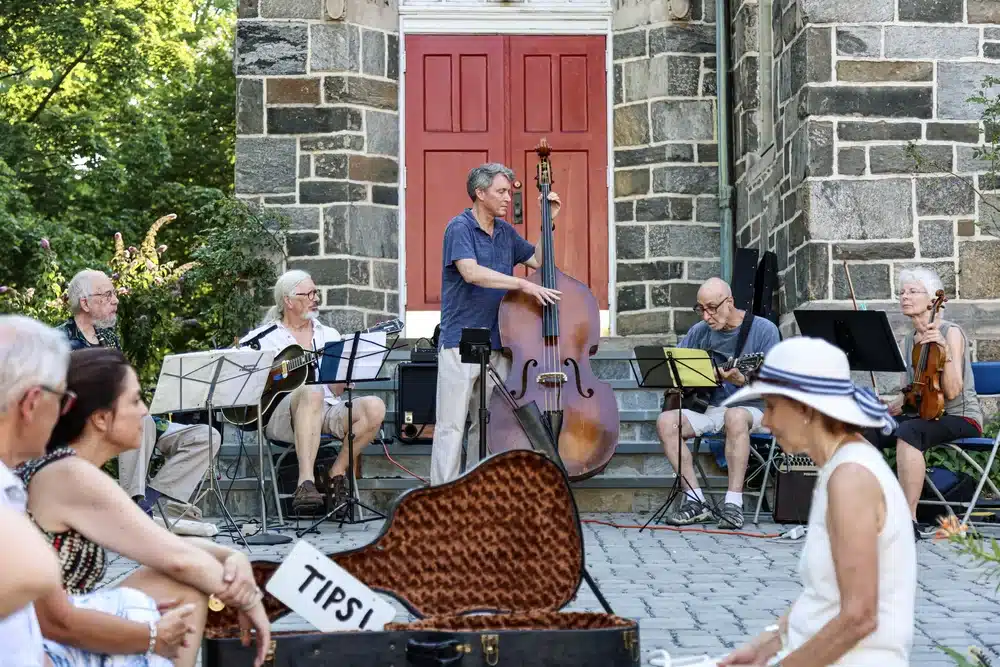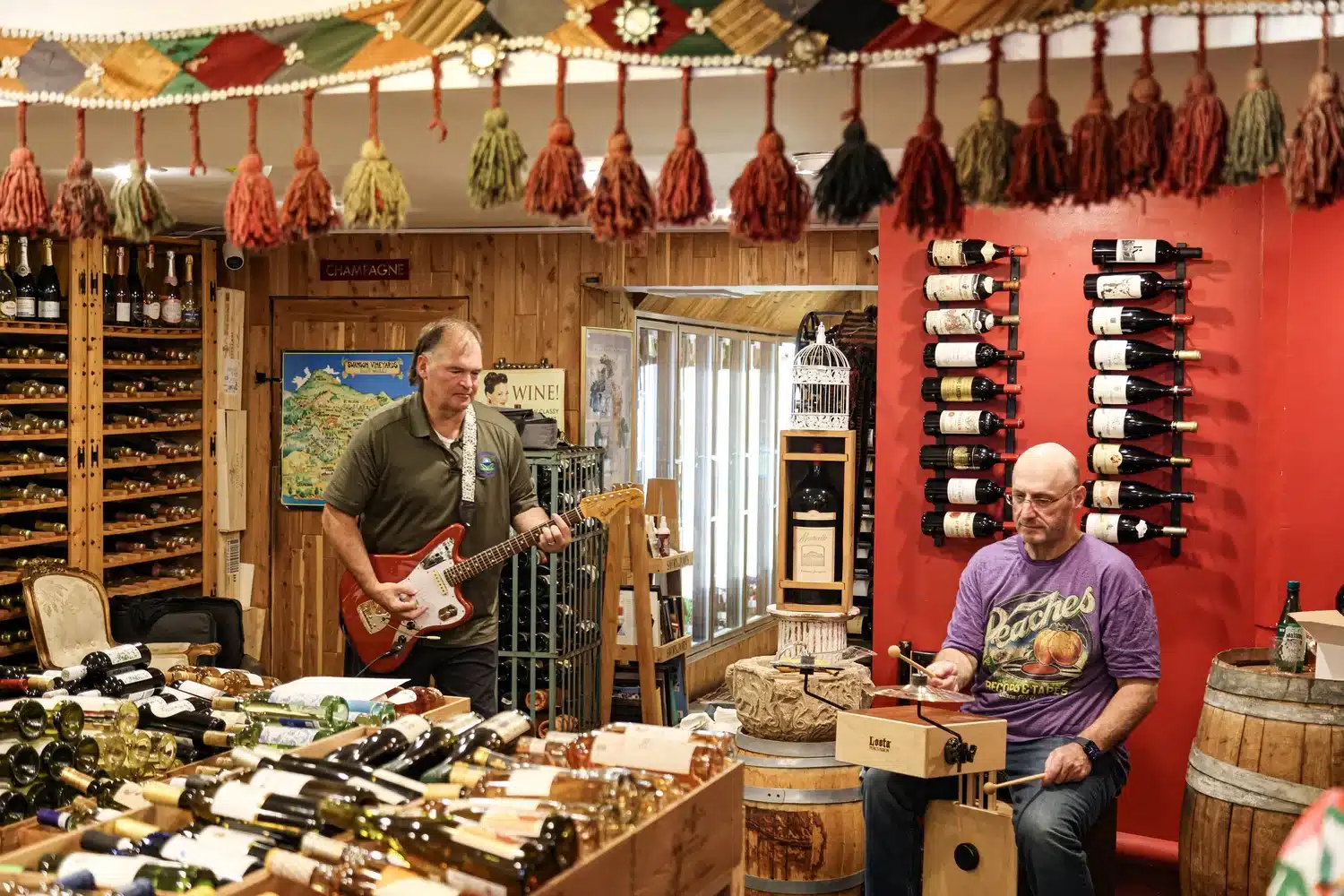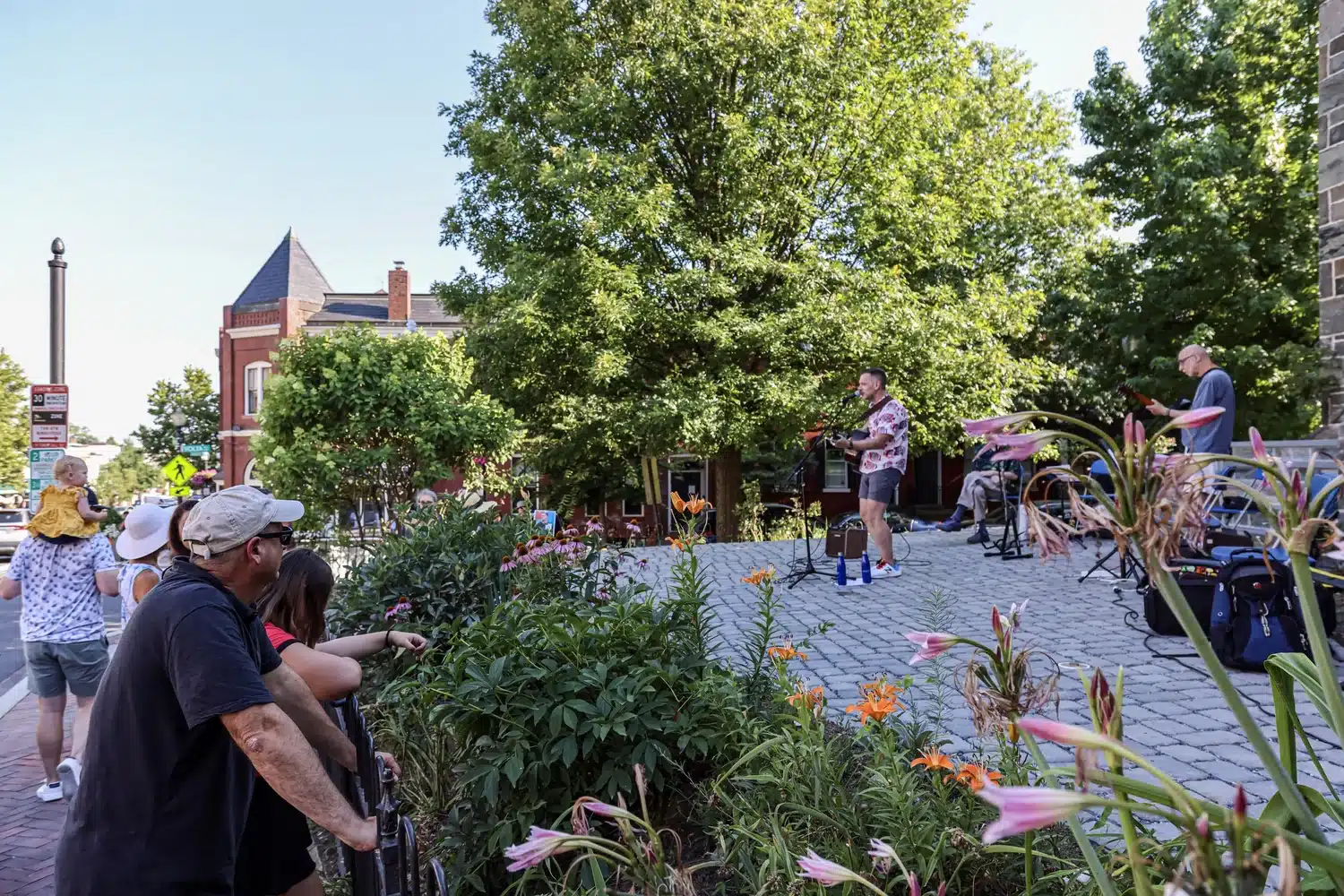Fête de la Musique (World Music Day) – France (and Europe) 2026
Background & History
- Origins and Vision: The Fête de la Musique was launched in France in 1982 by the Ministry of Culture, spearheaded by Minister Jack Lang and composer Maurice Fleuret, drawing inspiration from American musician Joel Cohen’s 1976 “Saturnales de la Musique” concept for a solstice music broadcast on France Musique radio. This initiative stemmed from a 1982 survey revealing that 5 million French people, including half of the youth, played musical instruments, prompting the creation of a free, nationwide event to encourage public performances and make music accessible to everyone. The inaugural celebration on June 21, 1982, in Paris attracted over a million participants, even amidst competition from a World Cup soccer match, turning streets, squares, and public spaces into vibrant, impromptu concert venues.
- Cultural Significance: Deeply tied to the summer solstice—the longest day of the year—the festival echoes ancient European pagan traditions, such as Saint John’s Eve celebrations on June 24, which historically involved bonfires, dances, and music to honor light, fertility, and community renewal. In France, it embodies core republican values of liberty, equality, and fraternity by democratizing music, allowing amateurs and professionals alike to perform without barriers, fostering social cohesion and cultural diversity in a nation rich with immigrant influences from Africa, Asia, and beyond.
- Global Expansion and Growth: The event’s international spread began in 1985 during the European Year of Music, gaining formal recognition in 1997 through a charter signed in Budapest, establishing it as “La Fête Européenne de la Musique.” Today, it encompasses over 1,000 cities in 120 countries, with France hosting more than 18,000 free concerts annually that draw around 10 million attendees, evolving from a local French initiative into a global symbol of musical unity and cultural exchange.
- Modern Evolution and Adaptations: Over the years, the Fête has demonstrated resilience, adapting to political changes like the 1986 government shift and modern challenges such as the COVID-19 pandemic, where it incorporated virtual livestreams and hybrid formats in 2020-2021. For the 2026 edition, marking 44 years, anticipate enhanced sustainability efforts like solar-powered stages, increased digital integration for global participation via apps and streams, and stronger cross-border collaborations across Europe, continuing to inspire similar events like Make Music Day in the U.S. while addressing contemporary issues like inclusivity for diverse communities.
Event Highlights
The Fête de la Musique transforms cities across France and Europe into open-air symphonies, blending professional artistry with amateur enthusiasm in a day-long celebration of sound and community. In Paris alone, the event features hundreds of stages, from iconic landmarks to hidden neighborhoods, creating an immersive experience where music spills into every corner, encouraging spontaneous interactions and cultural fusion. For 2026, building on recent editions, expect a mix of traditional and innovative programming that highlights France’s multicultural fabric, with events extending into the night under the solstice sky.
Europe-wide, the festival adapts to local flavors: Berlin’s techno-driven street parties pulse with electronic beats in districts like Kreuzberg, while Budapest’s Danube-side gatherings feature folk ensembles drawing on Magyar heritage, all unified by the event’s charter emphasizing free access and diversity.
- Main Activities or Performances: Thousands of free concerts spanning a vast array of genres including rock, jazz, classical, rap, electro, folk, metal, and world music, held in streets, parks, squares, and landmarks such as Paris’s Louvre Pyramid, Seine River bridges, Place de la République, and Tuileries Gardens; interactive jam sessions and open mics where attendees can join performers, creating collaborative musical moments; special themed showcases like the Grand Concert at Carrousel du Louvre Gardens, featuring orchestral performances synced with fireworks and broadcast live on national TV; in other French cities, Lyon hosts indie bands along Rhône quays, Marseille features Mediterranean rhythms at the Old Port, and Bordeaux offers pop-rock sets at Place de la Bourse; across Europe, Rome’s Piazza Navona echoes with classical ensembles, Barcelona’s Ramblas vibrate with flamenco and salsa jams, and London’s Southbank Centre presents multicultural fusions.
- Special Traditions or Features: The enduring slogan “Faites de la musique!” (Make music!) inspires everyone to participate, whether by playing instruments in public or organizing pop-up gigs; solstice-themed rituals such as dawn yoga sessions accompanied by ambient sounds or midnight fireworks choreographed to symphonic scores; eco-friendly innovations including solar-powered amplification systems, zero-waste recycling zones at major stages, and partnerships with environmental groups to minimize the festival’s carbon footprint; family-oriented zones with interactive workshops for children to craft simple instruments or learn basic rhythms through storytelling sessions; inclusivity efforts like sign language-interpreted performances and wheelchair-accessible stages, ensuring the event’s spirit of unity reaches all demographics; in 2026, expect tie-ins with broader cultural events like Pride Week, featuring LGBTQ+ artist spotlights and rainbow-themed dance parties in areas like Paris’s Marais district.
- Unique Attractions for Visitors: “Music hunt” mobile apps that gamify the experience by mapping hidden gigs and rewarding users with digital badges for discovering off-the-beaten-path performances; unconventional venues hosting surprise sets, such as electro DJs in Paris metro stations, classical quartets in libraries, or rooftop rock bands overlooking the city; celebrity appearances and collaborations, like international DJs at the EF Festival in Paris’s 15th arrondissement or guest spots by renowned artists at the Palais de la Porte Dorée’s urban pop lineup; global livestreams allowing remote participation, with virtual reality options for immersive “attendance”; themed neighborhood trails, for instance, reggae and Afrobeat in Bastille, choral and opera near Notre-Dame, or drill and rap in the 12th arrondissement; extended summer integrations like Paris en Seine, offering pontoon concerts along the river from June to September, blending music with swimming and outdoor activities; in European cities, unique twists include Berlin’s silent discos in historic parks or Budapest’s boat parades with floating stages on the Danube.
Date & Duration
- Dates: June 21, 2026, coinciding with the summer solstice for maximum daylight hours to extend outdoor festivities.
- Duration: Primarily 1 day, with events kicking off at dawn (around 5-6 AM in many cities) and continuing until late night or early morning (up to 2-4 AM), though some locations feature pre-solstice warm-up activities on June 20 and post-event wind-downs on June 22; in Paris, extended programming like Paris en Seine runs from June 21 to September 21 for ongoing musical and recreational vibes.
- Additional Timing Notes: Events are weather-dependent but resilient, with indoor alternatives in case of rain; European variations may adjust slightly for local time zones, but all align with June 21.
Venue / Location
- Main Hubs and Decentralized Nature: A fully decentralized festival with no central venue, spanning entire cities in France (Paris as the flagship, plus Lyon, Marseille, Bordeaux, Toulouse, Nantes, Strasbourg) and Europe (Berlin, Budapest, Rome, Barcelona, London, Chemnitz in Germany); in France, over 18,000 stages transform public spaces into performance areas.
- Notable Areas in Paris: Key concentrations include Jardin des Tuileries for orchestral sets (48.8651° N, 2.3297° E), Place de la République for diverse genres (48.8674° N, 2.3602° E), Seine River banks for pontoon shows, Luxembourg Gardens for classical, Palais de la Porte Dorée for rap and urban pop, Carrousel du Louvre for grand finales, Citéco mansion for jazz-funk, Château de Chantilly for electro, La Bellevilloise and 88 Ménilmontant for Pride-themed events, La Butte aux Cailles for covers, Place de la Contrescarpe for pop-rock, Cité internationale universitaire for electro-pop, Musée Jacquemart-André for opera, Serge Reggiani Square for local artists, and Place Louis Loucheur for world music.
- Regional and European Spots: Lyon’s Rhône quays for indie, Marseille’s Old Port for Mediterranean, Bordeaux’s Place de la Bourse for pop; Berlin’s Kreuzberg for techno, Budapest’s Danube promenades for folk, Rome’s Piazza Navona for classical, Barcelona’s Ramblas for flamenco, London’s Southbank Centre for fusions; Chemnitz features citywide stages welcoming summer.
- Google Maps Address: Place de la République, 75003 Paris, France – a primary hub for real-time stage mappings; search “Fête de la Musique [City] 2026” for other locations.
Ticket Information
- How Tickets Are Sold: Core street and public performances are entirely free with no tickets needed, emphasizing the event’s accessible ethos; select indoor or high-demand events (e.g., EF Festival, Grand Concert at Louvre, or museum shows) require free online registration via platforms like Eventbrite, the official website, or apps, often with lotteries for limited spots to ensure fair access; bundled options include transport packages through RATP’s app for unlimited night travel (~$4.60 USD); some premium experiences offer on-site upgrades, but advance booking is recommended for popular venues.
- Admission Type: Overwhelmingly free to promote inclusivity and widespread participation, with the vast majority of events open to all without barriers; rare paid elements are limited to VIP add-ons or bundled experiences, keeping the spirit of a public celebration intact.
- Ticket Pricing (USD): All standard concerts and activities: $0 USD; optional VIP areas, reserved seating, or special events (e.g., exclusive lounges at EF Festival or opera with champagne at Musée Jacquemart-André): $22-$55 USD based on €20-€50 conversions; transport bundles: ~$4.60 USD; no refunds typically due to free nature, but check specific event policies.
- Special Seating or VIP Options: VIP packages provide perks like priority access to stages, shaded or elevated lounges, complimentary drinks, and meet-and-greets at venues such as the Carrousel du Louvre or EF Festival ($33-44 USD); family-friendly reserved zones with seating and kid amenities ($0-11 USD add-ons); accessible seating for disabled attendees available upon request at no extra cost; some events like Rigoletto opera include bundled museum tours and champagne (~$55 USD max).
- Price Range: $0 – $55 USD (free for general admission and most activities; up to $55 for VIP or premium enhancements).
Contact Information
- Email: contact@fetedelamusique.culture.gouv.fr (general inquiries, event submissions, and coordination); international@fete-musique.eu (for Europe-wide partnerships and queries); presse@culture.gouv.fr (media relations, press kits, and accreditation); volunteer@parisinfo.com (volunteer opportunities in Paris); iledefrance@culture.gouv.fr (regional Paris-specific support).
- Phone: +33 (0)1 40 15 80 00 (Ministry of Culture headquarters in Paris, with multilingual support including English for visitor assistance); +33 (0)1 40 03 94 70 (ADCEP association for France event logistics and amateur performer registrations); +33 (0)1 49 52 50 00 (Paris Tourist Office for local guidance and maps).
- Website: https://fetedelamusique.culture.gouv.fr (official French portal with full program, interactive maps, registration forms, and livestream links); https://www.parisjetaime.com (Paris tourism site with event guides, neighborhood breakdowns, and transport tips); https://makemusicday.org (global Make Music Day hub for international extensions and resources); https://fete-musique.eu (European coordination site).
- Social Media: @FeteDeLaMusique (Instagram and X/Twitter for real-time updates, live stories, and user-shared content); @FeteMusiqueFR (Facebook for event streams, discussions, and photo galleries); #FeteDeLaMusique2026 (official hashtag for trending posts, participant sharing, and global engagement); @VisitParisRegion (Instagram for regional highlights).
- Key Staff: Jack Lang (founding patron and honorary advisor, contact via Ministry for historical insights); Rima Abdul Malak or successor (current Minister of Culture, oversight of national programming); regional DRAC (Directions Régionales des Affaires Culturelles) coordinators for local events (e.g., iledefrance@culture.gouv.fr for Paris); ADCEP team for amateur coordination.
- Press/Volunteers: Press inquiries and kits via presse@culture.gouv.fr (including accreditation for journalists and photographers); volunteer sign-ups through volunteer@parisinfo.com or the official app for roles like stage setup, crowd management, artist liaison, and eco-monitoring; opportunities available for all skill levels, with training provided; press response includes event previews and safety protocols.
- Note: Response times typically 24-48 hours for emails and calls; full support in English, French, and other European languages; sign up for newsletters at fetedelamusique.culture.gouv.fr for 2026 alerts, program announcements, and weather updates; for emergencies during the event, contact local authorities via 112.
Cultural Experience
The Fête de la Musique offers an unparalleled cultural immersion, weaving together France’s rich historical tapestry with contemporary global influences in a symphony of sounds that resonates through bustling streets and serene parks. Visitors can expect a dynamic blend of traditions, where ancient solstice rituals meet modern multiculturalism, creating moments of shared joy and connection that transcend language and background. In Paris, the event’s heart, neighborhoods come alive with performances reflecting the city’s diverse population— from North African raï beats echoing immigrant stories to Breton Celtic tunes honoring regional folklore—fostering a sense of belonging amid the longest day of the year.
Across Europe, the festival adapts uniquely: Berlin’s post-Wall energy infuses techno parties with themes of reunification, while Rome’s classical ensembles in historic piazzas evoke Renaissance grandeur, all while upholding the Fête’s core principles of gratuitousness and spontaneity. Costumes add visual spectacle, ranging from casual festival attire to elaborate traditional garments, enhancing the communal rituals like midnight dances or picnic sing-alongs that hark back to medieval European customs.
- Musical Diversity and Traditions: A profound showcase of France’s and Europe’s musical heritage, featuring genres from Algerian raï and Moroccan gnawa at Place Louis Loucheur to French chanson and urban drill at Palais de la Porte Dorée, with spontaneous communal sing-alongs and dances symbolizing solstice renewal; events like the Afro-jazz at La Halle aux Oliviers or Kabyle traditions blend cultural narratives, promoting unity through rhythm; in Lyon, medieval-inspired performances in hidden traboules (passageways) connect to historical guild celebrations, while Budapest’s folk costumes along the Danube preserve Magyar customs.
- Costumes, Customs, and Inclusivity: Participants don a spectrum of outfits, from embroidered Alsatian dirndls and vibrant West African wax prints to casual streetwear accented with festival accessories like flower crowns for solstice vibes; customs include neighborly picnics under the Eiffel Tower with brass bands, or silent discos with sign language interpreters for accessibility; Pride Week integrations in Paris’s 20th arrondissement feature rainbow-themed sets, emphasizing LGBTQ+ representation; overall, the event champions inclusivity with stages for disabled artists and family zones, turning cultural exchange into a lived experience of solidarity.
- Historical and Modern Fusion: Rooted in pagan solstice rites, the festival incorporates elements like opera at Musée Jacquemart-André with private tours, blending 19th-century elegance with contemporary music; electro sets at Château de Chantilly merge historic grandeur with modern beats; European variations, such as Barcelona’s flamenco passions or London’s multicultural fusions at Southbank, highlight how the Fête evolves while honoring local identities, creating a continent-wide narrative of cultural resilience and innovation.
Food & Drinks
During the Fête de la Musique, food and drinks become integral to the festive atmosphere, with pop-up vendors, extended bar hours, and gourmet deals transforming the event into a culinary-musical adventure. In Paris, streets fill with the aromas of traditional French fare adapted for on-the-go enjoyment, paired with regional wines and cocktails that keep the energy high through the night. Bars and restaurants often stay open later than usual, offering special menus that complement the surrounding performances, allowing visitors to savor local flavors while immersed in live music.
Europe-wide, regional specialties shine: Marseille’s seafood-infused bites reflect Mediterranean influences, while Berlin’s street food stalls offer currywurst alongside techno beats, creating a multisensory celebration that ties food to cultural identity.
- Classic French Street Fare and Must-Tries: Iconic galettes (buckwheat crepes) filled with ham, cheese, egg, or seasonal veggies from vendors near Seine stages (~$8-12 USD); fresh baguette sandwiches with saucisson sec (dry sausage), cornichons, and mustard for quick bites while wandering neighborhoods (~$5-7 USD); escargot skewers grilled with garlic butter, a Parisian festival staple available at pop-ups in the Latin Quarter (~$10 USD); onion soup or bouillabaisse-inspired stews in Marseille’s Old Port for hearty sustenance during late-night sets (~$9-12 USD).
- Regional and Fusion Specialties: Bordeaux’s sweet canelé pastries dusted with powdered sugar, paired with local rosé wines from nearby vineyards (~$6 USD pastry, $7 USD glass); Lyon’s quenelles (light pike dumplings in cream sauce) served in portable portions at Rhône quay stalls (~$9 USD); fusion options like merguez (spicy North African lamb sausages) in baguette sandwiches, reflecting immigrant culinary influences at events like Place Louis Loucheur (~$7 USD); seasonal treats such as Île-de-France strawberries dipped in chocolate or fresh from farms (~$4 USD); in European hubs, Budapest’s lángos (fried dough with toppings) or Rome’s supplì (rice balls) add international flair (~$5-8 USD).
- Drinks and Gourmet Deals: Refreshing Aperol spritz or kir royal cocktails (blackcurrant liqueur with champagne) at outdoor bars and cafés with extended hours (~$8-10 USD); craft beers like blonde ales from northern French breweries at buvettes (refreshment stands) near parks (~$5 USD); non-alcoholic alternatives such as citron pressé (fresh lemonade) or herbal infusions to combat summer heat (~$3 USD); special deals at restaurants like those near La Halle aux Oliviers, offering Afro-jazz dining with soul food pairings (~$10-15 USD plates); eco-conscious options include reusable cup services for Languedoc wines or organic ciders at zero-waste zones (~$6-9 USD/glass); champagne inclusions at premium events like Rigoletto opera (~$11 USD add-on).
Getting There
Navigating to and around the Fête de la Musique is seamless thanks to enhanced public transport systems designed for the event’s scale, ensuring safe and efficient access to decentralized venues across cities. In France, particularly Paris, authorities extend services to accommodate the all-night celebrations, minimizing reliance on personal vehicles amid street closures and pedestrian zones. This setup not only reduces congestion but also promotes eco-friendly travel, aligning with the festival’s sustainability goals.
European extensions vary: High-speed trains connect major hubs like Berlin or Budapest, while local apps provide real-time updates for seamless cross-city movement.
- Airports and International Access: Primary gateways include Paris Charles de Gaulle (CDG) or Orly (ORY) airports, with direct shuttles or RER trains to city centers (~$11-15 USD); for Europe, Eurostar high-speed rail from London to Paris Gare du Nord (~2 hours, $50-100 USD); TGV trains from Brussels, Geneva, or Barcelona to French hubs (e.g., 3 hours from Brussels, ~$60 USD); smaller regional airports like Lyon-Saint Exupéry or Marseille Provence offer budget flights with tram connections to event areas.
- Public Transport Options: RATP’s special Fête package (~$4.60 USD) grants unlimited access to metro, RER, bus, tram, and Noctilien night buses from 5 PM June 21 to 7 AM June 22; extended all-night service on metro lines 1, 2, 4, 6, 9, 14, RER lines A, B, C, D, E, and Transilien lines H, J, L, N, P, R; Vélib’ bike-sharing stations for eco hops (~$2 USD/hour, with thousands of bikes available); e-scooters from operators like Lime or Dott for short distances (~$0.20/min); in other cities, Lyon’s TCL metro extends similarly, while Berlin’s BVG offers night U-Bahn; apps like Citymapper or RATP provide real-time alerts and route planning around closures.
- Parking, Driving, and Accessibility: Limited street parking due to widespread closures—use apps like Parkopedia for secured lots near Seine or République (~$20-30 USD/night, book ahead); car-sharing services like Free2Move for flexible drop-offs (~$0.50/min); walking encouraged in pedestrian-only zones for immersive experience; accessibility features include SNCF Assist shuttles for wheelchairs, priority boarding on public transport, and ramps at major stages; avoid driving in central areas to evade traffic and fines; for Europe, Budapest’s public boats on Danube or Rome’s metro extensions mirror Paris’s setup.
Accommodation Options
Accommodations during the Fête de la Musique book up quickly due to the influx of millions of visitors, so early reservations via platforms like Booking.com or Airbnb are essential, with rates often spiking 20-30% around June 21. Options range from budget-friendly hostels near transport hubs to luxury hotels with views of key venues, allowing easy access to the decentralized events. Many properties offer festival-themed perks, like late check-outs or music-inspired amenities, enhancing the overall experience.
In Europe, stays reflect local vibes: Berlin’s hostels cater to party-goers, while Budapest’s riverside hotels provide serene retreats post-festivities.
- Budget Stays: Affordable hostels like The People Paris near Bastille ($40-60 USD/night) with shuttle access to République stages or Generator Hostel in République ($35-55 USD) featuring communal lounges for post-gig hangs; campsites in Bois de Vincennes or Bois de Boulogne on Paris’s outskirts (~$25 USD/tent site) for an outdoor, immersive vibe close to nature trails and peripheral events; shared Airbnb rooms in neighborhoods like Montmartre (~$30-50 USD) for authentic local feels; in Europe, Berlin’s Circus Hostel ($50-80 USD) near techno zones or basic dorms in Rome (~$40 USD).
- Mid-Range Hotels and Apartments: Comfortable options like Ibis Styles Paris Gare de l’Est ($80-120 USD/night) with central metro access for hopping between venues; citizenM Paris Gare de Lyon ($100-140 USD) offering modern pods, rooftop bars, and music-themed decor ideal for festival recovery; Airbnb apartments in Le Marais or Latin Quarter (~$90-150 USD) with kitchens for self-catering amid nearby gigs; eco-friendly mid-range spots in Provence extensions (~$120 USD/night) for southern France day trips; European equivalents include Budapest’s mid-range Aria Hotel with music suites ($150-250 USD) or Barcelona hostals (~$100 USD).
- Luxury Options: Opulent stays such as Hôtel de Crillon near Concorde ($500-800 USD/night) with panoramic Seine views and concierge services for gig bookings; Shangri-La Paris overlooking the Eiffel Tower ($600-1,000 USD) featuring solstice spa packages and private balconies for distant music vibes; boutique Hôtel Particulier Montmartre ($300-500 USD) with artistic suites and gardens for a serene escape; high-end Airbnbs with rooftops in central Paris (~$400 USD); in Europe, luxury like Berlin’s Hotel Adlon (~$400 USD) or Rome’s historic palaces (~$500 USD) for refined post-event luxury.
Maps
Contact
Video
FAQ's
When and where is the main event in 2026, and what should I expect in terms of scale and programming?
The Fête de la Musique occurs annually on June 21, 2026, aligning with the summer solstice for extended daylight, primarily from dawn to midnight across France and Europe, with Paris serving as the epicenter hosting over 1,000 stages in areas like Place de la République, Seine banks, and Tuileries Gardens; expect a massive scale with 18,000+ free concerts in France alone, drawing 10 million attendees globally, featuring diverse genres from classical at Luxembourg Gardens to electro at Château de Chantilly and urban pop at Palais de la Porte Dorée; programming includes interactive apps for gig discovery, eco-stages, and extensions like Paris en Seine for ongoing summer vibes; check fetedelamusique.culture.gouv.fr weeks prior for detailed maps and schedules, as the decentralized nature means events pop up in streets, parks, and landmarks without a single focal point.
Is the event free, do I need tickets, and what are the costs for any add-ons?
Yes, the core of the Fête is entirely free, with no admission fees for street performances, public concerts, or most activities, embodying its mission of accessibility for all; no tickets are required for general participation, but select high-demand events like the EF Festival or Grand Concert at Louvre require free online registration via Eventbrite or the official site, sometimes with lotteries; optional costs include VIP zones with lounges and drinks ($22-55 USD), family add-ons ($0-11 USD), or transport passes (~$4.60 USD for all-night RATP access); premium experiences like opera with champagne at Musée Jacquemart-André max out at $55 USD; always confirm via the website, as the free ethos ensures broad inclusivity without financial barriers.
What genres, activities, and cultural elements can I expect, and how does it promote diversity?
Attendees will encounter a vast spectrum of genres including rock, jazz, rap, classical, folk, techno, raï, and flamenco, with activities like jam sessions, workshops for instrument-making, silent discos, and themed trails (e.g., reggae in Bastille or choral near Notre-Dame); cultural elements draw from solstice traditions with dances, picnics, and costumes from dirndls to wax prints, reflecting France's multicultural heritage and Europe's regional identities like Magyar folk in Budapest or post-Wall techno in Berlin; the event promotes diversity through inclusive stages for disabled artists, Pride Week tie-ins with LGBTQ+ spotlights, and global fusions honoring immigrant influences, creating a unified celebration of humanity through music.
How can I get around safely, and what precautions should I take given past incidents?
Use extended public transport like RATP's all-night metro (lines 1,2,4,6,9,14), RER (A,B,C,D,E), and buses (~$4.60 USD pass), with apps for real-time alerts amid street closures; avoid driving due to limited parking (~$20-30 USD in lots) and opt for walking, bikes (~$2 USD/hour), or e-scooters; safety is enhanced with bag checks, increased police presence, and emergency lines (112); however, based on substantiated reports from recent years, including 2025 incidents of syringe attacks, stabbings (145 cases), clashes, 1,500 injuries, and 371 arrests in Paris, often involving crowds descending into chaos, visitors should stay in well-lit areas, travel in groups, avoid isolated spots, and report suspicious activity—while the event is joyous, awareness of potential risks in large gatherings is advised.
Can I perform or volunteer, and how do I get involved in the event?
Absolutely—amateurs and professionals can register to perform via regional DRAC offices, the official app, or website (fetedelamusique.culture.gouv.fr), with no auditions required for most slots, welcoming all genres and skill levels to embody the "Faites de la musique!" spirit; volunteer roles include stage setup, crowd guidance, artist support, or eco-initiatives, sign up through volunteer@parisinfo.com or local tourism boards for training and assignments; involvement extends to organizing neighborhood gigs or joining jam circles; for 2026, early registration opens in spring, fostering community participation that has grown the event from a French initiative to a global phenomenon.

